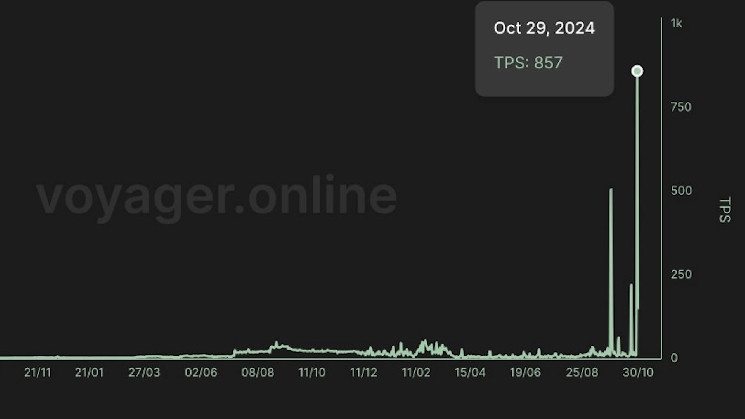Starknet, a zero-knowledge rollup, said on Wednesday it had broken the record for transactions per second (TPS) among Ethereum Layer-2 networks.
According to the team, Starknet “reached a maximum TPS of 127.5 in the last 24 hours.”
“The milestone occurred during a gaming stress test, which was called ‘dress rehearsal for mass use via L2s,'” according to a press release.
A Starknet spokesperson wrote in an email that this achievement knocked Coinbase’s layer 2 network, Base, out of the top spot and beat Base’s 24-hour TPS record of 79.92 TPS “by a wide margin.” reported, citing the website L2Beat.
A request for comment sent to Coinbase’s press email was not immediately returned.
Starknet is considered one of the top teams building layer 2 networks on top of Ethereum, due to its advanced cryptography and technical features – even though it ranks lower than rival projects in the rankings of top destinations for decentralized finance (DeFi) protocols. Its total value (TVL) – a measure of the deposits recorded in protocols on the network – currently stands at $235.7 million, according to DeFi Llama. That’s well behind Base’s $2.64 billion and Arbitrum’s $2.44 billion.
But the layer 2 projects compete on other key metrics – including speed, interoperability and the degree of decentralization.
The final “stress test” of the Starknet network was a joint effort between StarkWare, game development company Cartridge and the Starknet Foundation.
‘Flippy flop’
According to the team, around 11 million daily transactions were recorded and the peak TPS was 857.
“The stress test was conducted using a game called ‘flippyflop’ developed by Cartridge,” according to a press release. “In the tile game, users competed with bots to control tiles on the grid. Bots tried to undo the gamers’ work by randomly knocking out tiles. So the theme was ‘human versus machine’. The fast pace of simple transactions that generated during this game is designed as the ultimate test of Starknet’s TPS.”
It should be noted that Starknet’s TPS test may not be an apples-to-apples test comparison with other networks.
In other contexts, such as zero-knowledge provers – a crucial component within many blockchain systems – special efforts have been made to conduct testing in a controlled environment.
And there are often trade-offs – speed versus decentralization, for example.
Read more: What are mergers? ZK rollups and optimistic rollups explained

